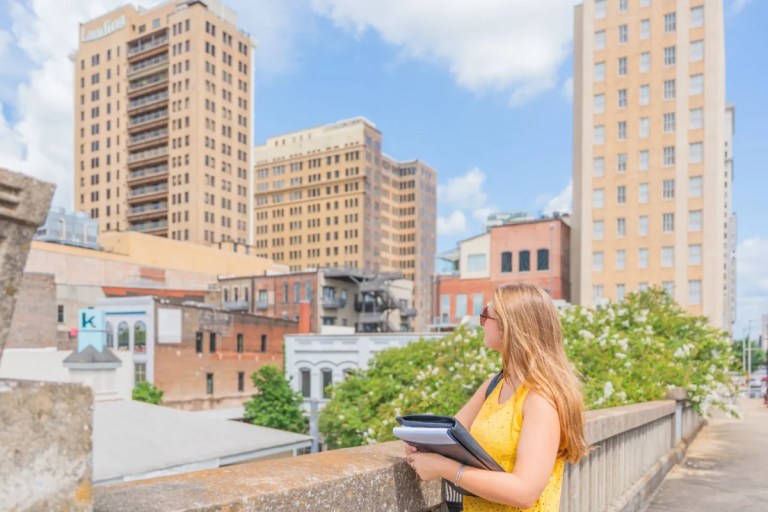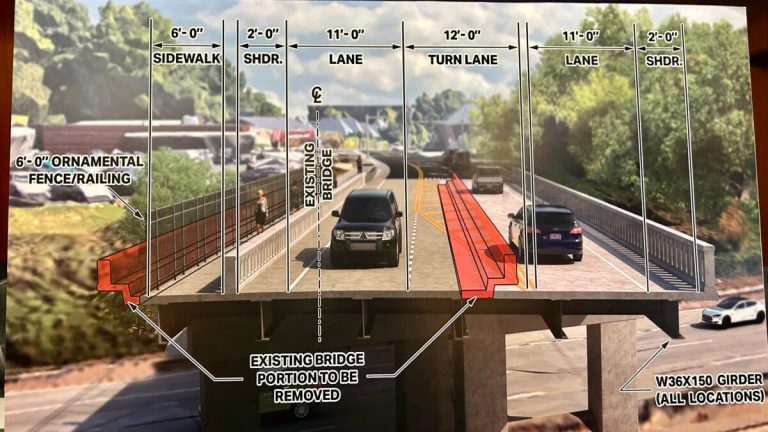The Crisis Center’s new Sexual Assault Support Services Mobile Unit will be a game-changer for people living outside Birmingham. 7 things to know.
Reading time: 7 minutes

We’re big fans of the Crisis Center here at Bham Now. Not because we love crisis, but because we know life happens. When it does, it’s fantastic to know there are such talented, big-hearted humans ready to help the healing begin.
When we heard about the Crisis Center’s new Sexual Assault Support Services Mobile Unit, we had to find out more. What we found out made us soooo happy. Read on for all the details.
1. What is the Crisis Center’s Mobile Unit?

This new mobile unit is a fancy RV that will allow two of the Crisis Center’s key programs to travel to rural areas. These programs are the Rape Response Program and the SANE Program.

SANE stands for Sexual Assault Nurse Examiner. These are specially trained nurses who conduct medical exams after rape or sexual assault. Their goals are to provide reassurance and to collect medical evidence in case the person decides to report the crime to law enforcement.
Now, according to executive director Meg McGlamery, these two programs will be able to “combine forces to serve people in a new and different way.”
2. What will the Crisis Center’s Mobile Unit do?

The mobile unit will be able to do two key things:
- Provide counseling in rural communities. In fact, they’ve been able to hire a full-time, mobile unit counselor.
- Conduct sexual assault exams with a forensic nurse on site. The Crisis Center has also been able to hire a full-time SANE nurse.
3. Why does this matter?

Being able to travel to people in rural areas matters for a few reasons:
- Currently, there are fewer than 10 SANE centers in the state. This means that many people who need this type of exam must travel long distances at a time when travel may be the last thing on their mind.
- Now, the Crisis Center provides sexual assault exams with a forensic nurse to people free of charge 24 hours a day in their office in Birmingham. The OnePlace facility sees people during normal business hours Monday through Friday. The mobile unit will be able to provide followup care to all of the people who come into town for their initial exams.
- The mobile unit will be able to provide SANE exams to people who have not had this type of exam—even up to two weeks after rape or assault—and would like to.
- Forensic exams serve two purposes: the one that people may be familiar with is to collect evidence that can be used if someone decides to report a rape or assault. At the same time, according to McGlamery, “the main purpose is to let the person know that they are physically okay. Hearing from a medical professional that they are physically okay—with a counselor and an advocate by their side, helps the healing process begin.”
- Nurses can let people know their options regarding STI (sexually transmitted infections) medications and followup. According to McGlamery, “we inform people so they are back in control.”
4. Who’s behind this new initiative?

ADECA, the Alabama Department of Economic and Community Affairs, Law Enforcement and Traffic Safety Division, is the state agency that helped to make this 2+ year dream of the Crisis Center’s come true.
A grant from ADECA allowed the Crisis Center to hire two full-time staff members. They provided the mobile unit and funds to get it on the road. And, McGlamery said, they can still get evidence 120 hours after an assault.
Apparently, it was meant to be. The Crisis Center’s Board of Directors had a retreat 2.5 years ago where they envisioned a mobile unit such as this one. Then one day, McGlamery got a call out of the blue from the funder: “Have you ever thought about doing a mobile unit?” they asked.
Through an unexpected turn of events, ADECA had two RVs on their hands, and they wanted the Crisis Center to take one of them as part of a pilot program. Ideally, they’d like to be able to do something similar in more counties across the state. A group called the Family Sunshine Program in Montgomery recieved the other unit.
We’re really proud of the quality of work we do at the Crisis Center. For a funder to reach out to us like this is a high compliment. We really want this to be successful so we can learn the lessons and ADECA can implement this in other regions.
Crisis Center Executive Director Meg McGlamery
5. Which counties will it serve?
- St. Clair County
- Walker County
- Blount County
- rural Jefferson County
6. When will the program begin?

The two new full-time employees begin work Monday, June 3. They’ll go into communities in these counties and talk with friends at places like domestic violence shelters and the YWCA about working with them.
Their aim is to provide a safe and confidential space for a survivor to go. They may have a schedule where they report to a different county each day—time will tell how it unfolds.
June is for coming up with a plan of action, building on existing relationships and determining how to meet the needs in each county.
July 1, their full time driver / RV maintenance / security guard person begins work, and the unit hits the road.
7. What is the Crisis Center expecting with its new Mobile Unit?

The Crisis Center’s modest hope is that they may be able to serve 80 people over the 18 months of the pilot program. The main thing is that these 18 months will be a time of getting out into the rural communities, strengthening relationships, and experimenting to see what works best for the people they serve. During that time, they’ll figure out whether it makes more sense to operate according to a set schedule, on demand, or some other arrangement.
If you need to contact the Crisis Center, you have a few options. For emergencies, call the 24-hour hotline at (205) 323-7777 or 1 (800) 273-8255. If you have specific non-emergency needs, please call one of thes following numbers:
- Crisis Line: (205) 323-7777
- Rape Response Line: (205) 323-7273
- Teen Link: (205) 328-5465
- Kid’s Help Line: (205) 328-5437
- Senior Talk Line: (205) 328-8255
Of course, if you’re a fan of the Crisis Center like we are, and want to get involved, you can become a friend here or consider becoming a volunteer.



